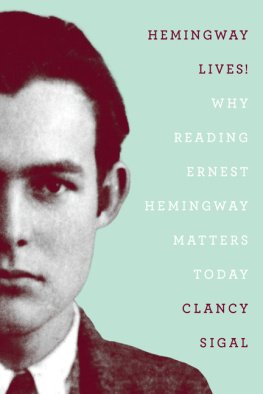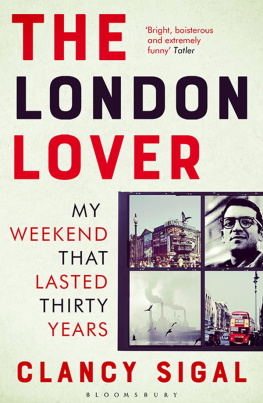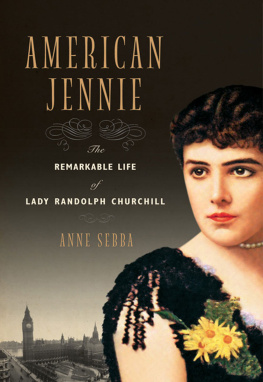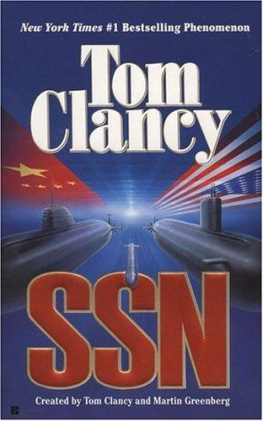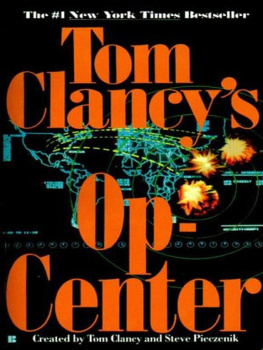A Woman of Uncertain Character
The Amorous and Radical Adventures of My Mother Jennie (Who Always Wanted to Be a Respectable Jewish Mom) by Her Bastard Son
Clancy Sigal

For my son, Joe Sigal
and
His mother, Janice Tidwell
Contents
Prologue
CHICAGO, 1935
The states attorneys office in the Loop, at night. The building is empty of daytime workers except for the detectives and uniformed cops on the eleventh floor gathered to grill a suspect, my mother, Jennie Persily. They picked her up at work, but she resisted until they agreed to drive her home to dress for the occasion and to drag me along. In all her dealings with the police she refuses to look anything less than her best. Makeup just right, cloche hat tipped over one eye concealed by half veil, navy-striped linen jacket, white rayon blouse cut low, long coral-red rayon skirt with large black buttons, gauntlet-style black kidskin gloves, and vamp silk pumps with three-inch heels. She gazes directly into the desk lamp shining in her face, behind which shadows pump questions at her.
One of the shadows leans over and takes her face in his hand, a major liberty. She shakes him off contemptuously. Tough guy, eh? Try that on your wife at home. The shadow moves in threateningly and another says, Take it easy, Ed.
Ma calmly demands, You promised someone to care for my boy. Either take him outside or bring a nurse.
They ignore her demand, thank God. Fascinated, I perch on a wooden bench in the semidarkness, pretending to read a Big Little comic book on my lap. Theyre treating my mother like John Dillinger or Ma Barker, who theyd just shot full of holes down South somewhere. Who had she murdered and would they beat her up? I wondered.
I cant follow the grilling. Words like extortion, executive board, intimidation, local this and local that. Ma finally leans over and gently twists the lamp so the glare is on the detectives behind the desk. They look like Halloween ghosts. Cut it out, Jennie! barks one of the cops, putting the light back where it was. Ma recrosses her silk-stockinged legs, reaches into her purse, pulls out a Pall Mall, and takes her time lighting it. Blows a perfect smoke ring. She offers the pack to the darkness. Nobody accepts.
I have to go to the bathroom but am afraid to ask. Whatever happens, I dont want to be away from Ma. Somebody notices me fidgeting and sighs. Okay Jennie, gwan home with your brat. But watch your step next time.
Ma sits smoking, taking her time. Cmon, urges another cop, its been a long night. Satisfied, she gets up, straightens her outfit, pulls the veil down, and says to me, Kalman, were through with the gentlemen. She was through with them.
We sail through the outer office toward the elevators. Nobody follows us into the hallway. At the elevator two men get on. Silence. One of them lays an envelope on her chest and says, You dont have to do anything for this, Jennie. Just stay home for a couple of weeks until things blow over. Ma fakes accepting the envelope, but just before we get out on the ground floor she smartly slaps the envelope back on the guy whod given it to her. When the door opens there are more plainclothes in the lobby waiting to take us by surprise. Ma hasnt taken the envelope. As she steps out she says to the cops, What do you take me fora greenhorn? She pushes me through revolving doors out onto State Street.
In the taxi home I pester Ma to tell me what its all about. Carefully removing her hat, she explains that the men were states attorney detectives waiting to arrest her for accepting a bribe to help them break the sweater makers strike. Marked money. They take me for a fool just off the boat. She shakes her head, so full of rich red auburn permanent-waved hair, and stares out into the Chicago night. Theres no excuse for stupidity. She turns to me and lifts an educating finger. Not all cops are this dumb, Kalman. Just some. Theyre the ones to be afraid of.
But how do you tell the difference? I ask.
She laughs. Oh, theyll let you know, dont worry.
Then she reaches over to hug and draw me close to her in the backseat. You did well tonight.
I didnt do anything, I say.
Exactly, my sweet child, she says.
1 A Chat with Grandma
LIKE DR. FRANKENSTEIN, I, Jennies son, bring the dead back to life. In Hollywood, where I write movies, I helped raise Frida Kahlo from her grave, gave the kiss of life to Sandra Bullock as the wartime nurse who was Hemingways first love, and resurrected Maria Callas and Simone de Beauvoir. The only woman who has resisted my touch is my own mother. It should be a piece of cake, since no producer is leaning over my shoulder to demand a money shot.
A story comes easier if you imagine the actress who plays the lead, so Im casting not one, but three stars in Jennies role: Reese Witherspoon (in a red wig) as my mother the teenage sweatshop worker and strike leader; Julia Roberts with her glorious swagger as the single mother of a mutinous son; and Susan Sarandon or Kathy Bates as the scandalous, liberated older woman putting it all out there. Jennie hated sentimental self-sacrifice, so Meg Ryan is all wrong for the part. Ma, who loved movies, might have preferred Myrna Loy or Ginger Rogers, but thats not possible.
The story that follows tracks my obsession withand journey towarda woman it has taken all my life to find through her miasma of lies and half-truths and evasions. What a genius she was at covering her trail. Why do our parents do it? Whats in it for them?
Id make a good cold-case detective, slow but tenacious.
Authors note: Writing Jennies story is to violate the most fundamental compact between my mother and meto keep it strictly between ourselves. Squealinginformingwas lower than murder, worse than the ultimate crime of scabbing on a picket line. Our conspiracy of silence became second nature, as it is in Mafia families. Style was ultra-important to my mother, and her mode was extreme poise under stress, iron calmness at all costs. She did not warn, prompt, or sermonize on the absolute need for secrecy, but enforced our Jewish form of omerta merely by a single lift of her arched eyebrow or a quick sidelong glance. For a long time I felt that talking or writing about her would be like ratting outa violent betrayal of everything in our culture.
But now that I am a father and tempted to veil from my son certain facts of my own life, I see where family mystery gets us: Nowhere.
Even before I was tenmy son Joes age nowI was already Jennies accomplice and partner in crime. It was like being a Mob kid, except in reverse. We were the good guys, the union people, against whom Al Capone and Meyer Lansky supplied the paid goons who beat up my parents and their friends. But this wasnt like The Untouchables. In real life, the lines of morality got all twisty and tangled. Our little household, moving from city to city and state to state, had an in with connected guys, tank town gorillas who could be lured away from strikebreaking by a decent enough bribe. We lived in a twilight world between law and lawless and were comfortable in the commute.
In the 1930s there was no clear boundary between honest trade unionist and hoodlum-for-hire because, in a world of shifting alliances and desperate men and women, you couldnt afford legalistic ethical judgments. Leo Sigal, my dad, packed a Colt .45 model 1911 with a five-inch barrel; Jennie Persily, my mother, although a sworn pacifist, used her fists, as well as her strong voice, on scabs. In the furnished rooms we kept moving in and out of, Jennie and Leo entertained a cosmopolitan cocktail of small-time criminals, professional and accidental hoboes, drifters, curbstone philosophers, Prohibition-era ex-bootleggers, Wobblies (International Workers of the World) committed to industrial sabotage (propaganda of the deed), anarchists, and freeloaders, a swirling soup of men and a few women devoted, in one degree or another, to the union faith. Until I was an adult I thought every home was like this.


